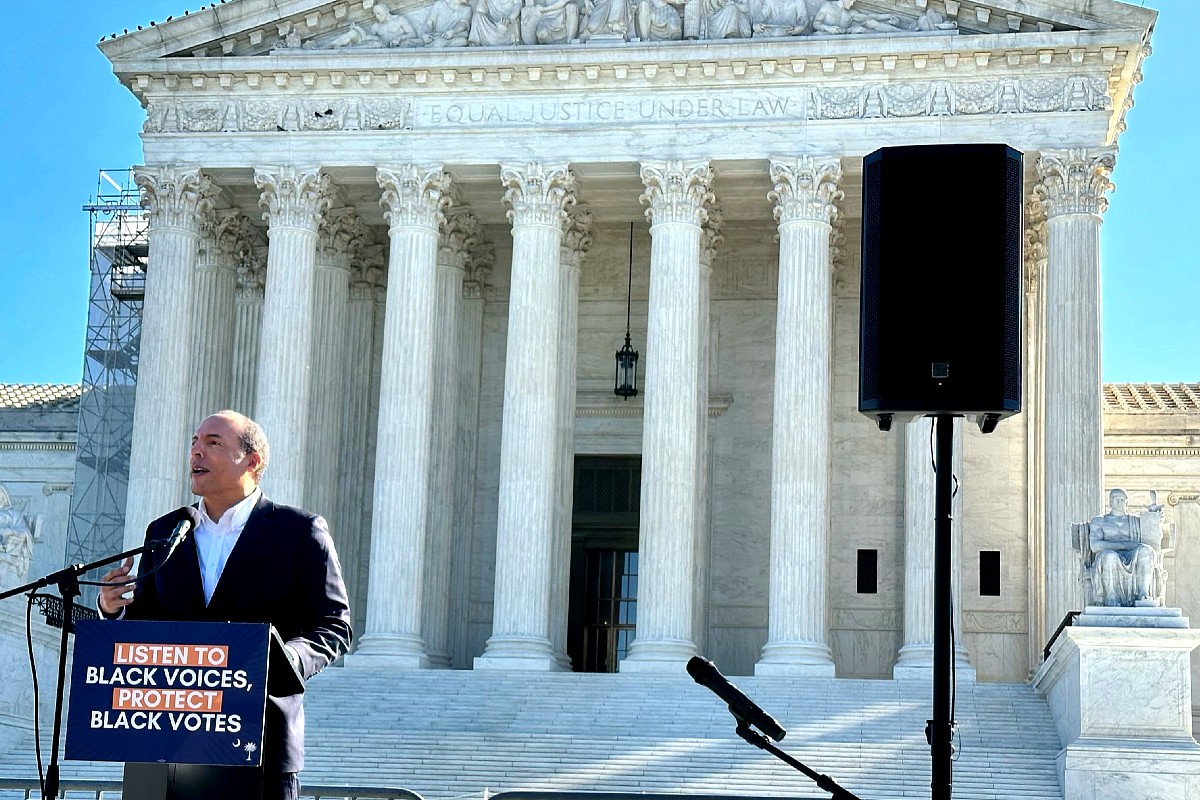
By Andy Brack | The way that U.S. Supreme Court justices posed questions Wednesday about whether the First Congressional District in South Carolina was unconstitutionally gerrymandered makes it look like the fix is in. They may be poised to side with arguments that how South Carolina legislators jiggered district lines was OK.
 But what our state’s elected Republican leaders did was not right. Mapmakers redrawing district lines to account for population 2020 shifts actually moved 30,000 Black voters out of the First District. That effort essentially “bleached” the district by dramatically boosting the percentage of White voters. Because Blacks historically vote overwhelmingly for Democrats, the not-so-subtle reapportionment exercise gave incumbent U.S. Rep. Nancy Mace, R-S.C., a much safer Republican district – one that will be harder for her to lose because of the very way the map is drawn.
But what our state’s elected Republican leaders did was not right. Mapmakers redrawing district lines to account for population 2020 shifts actually moved 30,000 Black voters out of the First District. That effort essentially “bleached” the district by dramatically boosting the percentage of White voters. Because Blacks historically vote overwhelmingly for Democrats, the not-so-subtle reapportionment exercise gave incumbent U.S. Rep. Nancy Mace, R-S.C., a much safer Republican district – one that will be harder for her to lose because of the very way the map is drawn.
In 2020, she squeaked out her first win using old map lines. But in 2022 with the new redder (and whiter) map, she won by 14%.
The issue, however, isn’t black and white, apparently, for some justices.
“Disentangling race and politics in a situation like this is very, very difficult,” Chief Justice John Roberts said Wednesday in questions to lawyers during oral arguments about the South Carolina case.
Umm, judge. Focus on this number: 30,000. It ain’t too hard to see how moving 30,000 Black voters sounds like a pretty good tip of the hat for race, not politics, being the deciding factor in that map – a map that a panel of three lower court federal judges found to be unconstitutional.
The Supreme Court, which in June struck down a gerrymandered map in Alabama for diluting Black voting power, doesn’t appear to be on that same track with the South Carolina case. That may be because the arguments in the Alabama case focused on a federal civil rights law, while key issues in the South Carolina case are found in the equal protection clause of the U.S. Constitution, according to The New York Times. “The two can tug in opposite directions,” the Times report noted.
While the court signaled Wednesday that it might lean toward reversing the lower court’s decision on the unconstitutionality of the First District, let’s hope a little common sense will prevail.
Michael B. Moore, a Black Democrat who is running against Mace in 2024, took a podium outside the U.S. Supreme Court on Wednesday to remind justices about a similar situation seven score years ago involving his great-great- grandfather, Civil War hero Robert Smalls.
After the war, “Robert Smalls went on to serve five terms in the U.S. Congress,” Moore said in a story he often tells on the stump. “But in 1884, his district was gerrymandered by extreme politicians who sought to mute his influence and silence the voices of those he represented.
“Sound familiar? Now, in 2023, I find myself here on the steps of the Supreme Court, fervently advocating for the voting rights of roughly 30,000 Lowcountry residents — many of whom are almost certainly descended from the same constituents that Robert Smalls served.”
Moore said today’s voters who were in the First District have been deprived of their voice in Congress.
“Their voting power has been significantly diluted. And their rightful impact on our democracy has been unconstitutionally diminished,” he said. “While 1884 may seem like a long time ago, the same cynical tactic endures in 2023: marginalizing one bloc of voters to benefit another, and maintaining unearned political power by whatever means necessary.”
You’d think we could do better today. Dum spiro spero. While I breathe, I hope.
Andy Brack is editor and publisher of Statehouse Report and the Charleston City Paper. Have a comment? Send to: feedback@statehousereport.com.


